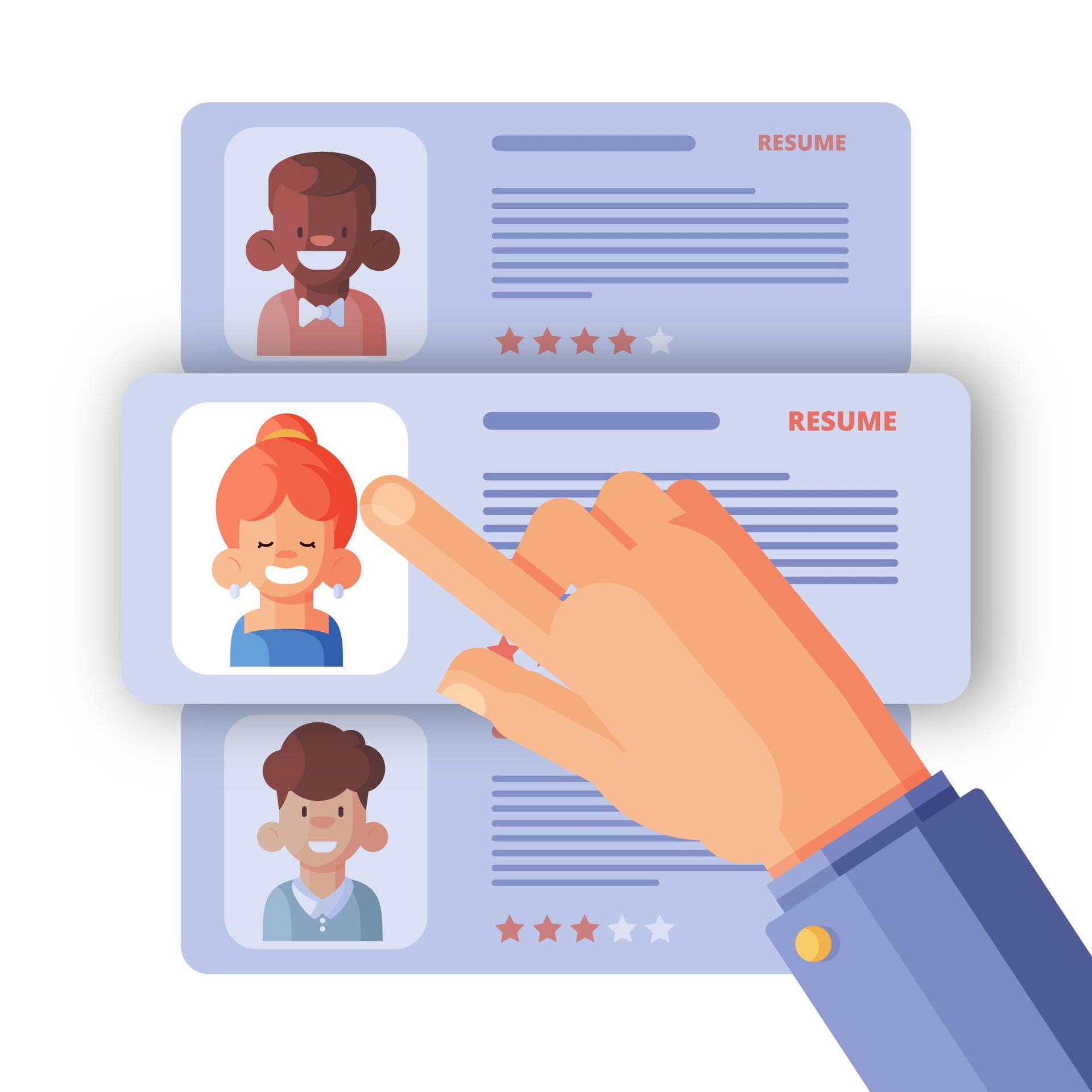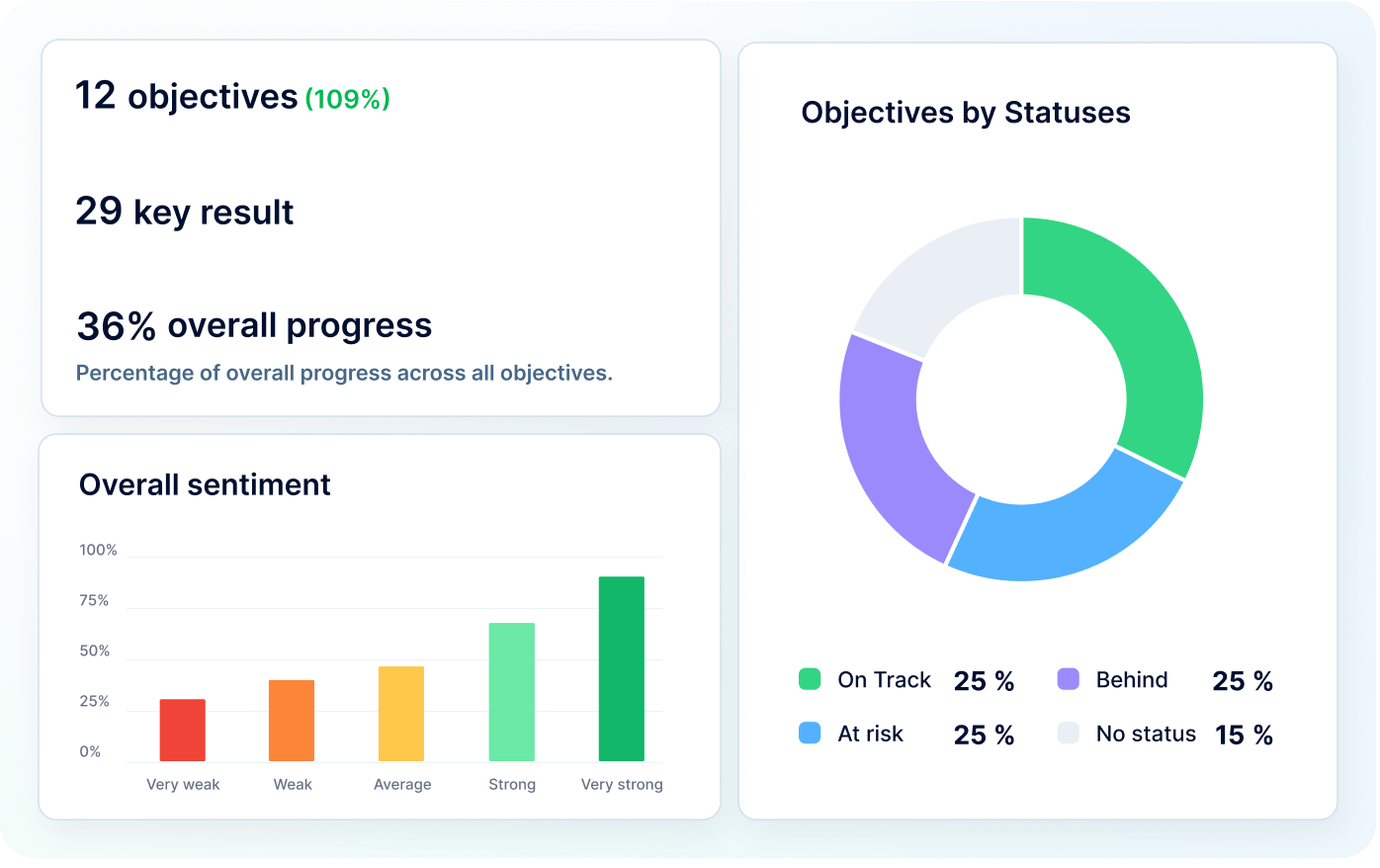
Top 25 methods of hiring pre-screening
Sometimes, fellow HR professionals, we face not only the problem of finding and selecting talent for vacancies, but also the need to quickly and efficiently conduct pre-screening.
Pre-screening is a preliminary assessment of the professionals with whom we will have to collaborate with. In this case, we are only interested in working skills/hard skills. However, the assessment can also be broader if we want to learn more about a potential colleague’s background.
Personnel assessment methods will help you to study the background of a specialist, assess their interest in the field of your activity, loyalty to your company, and understand how well a person will fit into your team.
How to choose a method, and when is pre-screening required?
Candidate assessment is your additional guarantee that you will be a find a good match. With its help, an HR specialist:
- Finds out as much information about the candidate as possible, which can be added to the database and saved for the future in case the candidate is not suitable for the current vacancy but can handle future ones.
- Competently builds communication with the candidate, shows interest on the part of the company, which is always an advantage when choosing between several job offers.
- Weed out candidates who do not fit the company's professional competencies.
- Will interest the candidate in the company's existing cases and immediately engage them in the search for solutions that can be used in the future.
- Protects the company from potentially inconsistent personalities, such as toxic candidates who show signs of poor communication during the recruitment process.
If you would like to take into account all the previous points, as well as simply get to know the candidate, give them sufficient time and make sure you’re on the same ‘wavelength,’ then you need pre-screening.
There are several pre-screening methods, and they can be used both sequentially by stages and pointwise for specific purposes.
We are publishing 25 options for assessing personnel when hiring - they will help you to conduct an "A to Z" pre-screening if you wish.
Methods for evaluating candidates when hiring

Preliminary assessment
1. Resume screening
Consider this option as an in-depth study of the candidate's resume. Pay attention to the chronological order of publication of their places of study, and work to understand their changes and major life decisions.
Particularly noteworthy are:
- Indication of specific tasks and occupations of the candidate, in addition to jobs and positions. Look to see if he or she has specified what exactly they were responsible for, what he or she did, whether there are any achievements to speak of figures, links to projects etc.
- Contacts of people who can give the candidate a recommendation
- List of hard and soft skills
- Link to their portfolio
- Links to social networks
- Additional information about readiness for relocation / wishes for work schedule, etc.
Even if some of the above information is missing, it will serve you as a good reason to start a conversation at the stage of personal contact.
Life hack: Check job sites for other resumes of the candidate and compare for differences.
2. Search by name/data in the network
This is an underestimated point that will provide a lot of information about the candidate. It happens, for example, that for various reasons they do not indicate the projects in which they were involved. But a search by personal data will open the veil of past tasks…
This will help you find out if someone mentioned the candidate as a speaker/expert, participated in events, or wrote about the field in which the vacancy is open. If you want to find out if a person has any scientific articles too, check Google Academy.
Life hack: If you are looking for a candidate for a high position in the company, look for reviews about them as a manager or leader. Negative reviews will help you weed out unsuitable candidates.
3. Viewing social networks
Although this social networks usually personal information that in most cases does not relate to the candidate's skills and abilities, it will help you learn about them informally, help you understand the candidate's hobbies and interests, and see if they are building a personal brand online.
For creative professions, checking social media will be a great opportunity to see how a person creates visual content, writes texts, or shares ideas.
Life hack: Be sure to check out the candidate's Linkedin page. This is a professional social network that is difficult to ignore when looking for a job in 2023. If you are looking for a person for a managerial position, the absence of a Linkedin page or outdated information on it can be a red flag and something worth exploring in more detail.
4. Checking the candidate in the registers of public services
If it is important for your company that a person is mnot currently being sued or is in debt you can go to the websites of your local tax service and the Unified Register of Debtors to verify their status.

First contact with the candidate
5. Questions in the job description
Screening can be planned as early as the creation of the job description. Write down a few common standardized questions at the end so that candidates can send you resumes with answers.
Remember that there should be no more than five questions, we also recommend asking candidates about relocation opportunities, wishes for the work environment, schedule, responsibilities, salary expectations, etc.
6. Cover letter
A candidate's resume can tell you a lot about their skills, experience, etc. But if you want to know more, ask for a cover letter as part of the application process. Specify that the cover letter should include, for example:
- The candidate's opinion about the company and the position, responsibilities mentioned in the job description, his/her vision of the job
- The candidate's strengths that can be applied to this position
- The top three ideas that he/she would like to implement in this position
Remember that you should ask the candidate for a letter of no more than 1-2 pages of text, and focus not on detailed advantages, but on breadth of thought, availability of ideas, and desire to achieve results with the team. If you are interested in the candidate's creative side, the cover letter will be excellent material for studying the style.
7. Contact in email correspondence or messengers
It is better to contact the candidate in advance in correspondence. If it's a professional network, job search site, or social network, the first exchange of messages can be in the messenger format. Don't forget to mention the job, the company, your name, and an offer to call at a convenient time.
If you decide to send the candidate an official letter inviting them to a phone interview, don't forget to attach the job description in the, and offer to ask any questions before the first call, if necessary.
Life hack: If the candidate's resume indicates their preferred method of communication, always listen to their wishes. A person may not want to go through a phone interview and immediately want to complete a test task, for example. If this is not strictly regulated at your company, consider compromises and concessions. Remember that a candidate may be introverted, nervous, or simply lost in conversation.
8. Phone interview
This is the first direct contact with the candidate so you should have a script prepared in advance. Since a phone interview is not a fully-fledged version of a job interview, the script does not have to be individualized; at this stage, it is more important to interview candidates equally.
What’s important to clarify during a phone interview:
- Describe the company (briefly), it’s field of activity, the department in which the candidate will work
- The requirements of the position
- Quickly go through the resume and ask about their latest work experience
- Clarify whether the candidate has the skills to perform the work for the available position
- Ask about their wishes regarding schedule, location, and clarify the details once again during the relocation
- Ask about salary expectations
- Describe the company's offer and additional benefits / bonuses
- Specify a convenient way of further communication
Life hack: Enter all additional information shared by the candidate into his or her card in your company's candidate database, and tag it to keep the data as fresh as possible.

Conducting an interview
9. Structured interview
This is exactly the method of interviewing that we call a standard interview. You meet with the candidate directly, offline or via video, and go over the job and their skills in more detail. What is important to clarify in a structured interview:
- The candidate's hard and soft skills
- The skills they gained at previous jobs
- How they were applied, what were the results
- What kind of people they would like to work with, what’s important to them regarding teamwork, whether they want to devote time to individual work on personal projects
- Discuss salary expectations once again
Structured interviews provide a clear structure and a plan of questions, according to which you will listen to the candidate and be able to give them with preliminary assessments based on the results of the interview.
Life hack: Choose a scale if you don't have an integrated ability to give a candidate a score. Note how many points the candidate scored on different indicators. The scoring system is applied to the next stage/method.
10. Panel interview
This method of personnel assessment during hiring is carried out after the first meeting if the candidate and the company are suitable for each other, and a final assessment by several employees is required.
For a panel interview, colleagues who will directly interact with the newcomer are selected in advance: a department head, a line manager, a future partner, etc. The format of such an interview is short questions on hard skills that need to be clarified before making a decision. Ask your hiring teammates to prepare in advance.
After the panel interview, the hiring team also gives the candidate a score, and the HR manager or HRM system automatically summarizes the scores.
11. Video interview
This method is used in areas where you need to see how a person behaves on camera. The candidate is sent questions and asked to film the answer to them in video format. The candidate sends the video to the manager, and the hiring team watches the result and makes a decision.
Life hack: Don't forget to specify the requirements for the video. It's not complicated: HD resolution, daylight, clear sound without extraneous noise, and plain clothes usually solve any situation.

Candidate testing
12. Pre-test
An employment pre-test or screening test is a good tool for screening candidates at any stage of recruitment. It may include:
- Questions about professional results
- A task or case set by the company's
- Trial tasks for logic and intelligence
- Questions about the candidate
Screening tests have become popular with the development of HRM systems, which nowadays have a wide range of functionality for creating questionnaires at the hiring stage. In fact, you can ask a candidate to take an additional survey at any time and send them a link or a form to fill out.
13. Test task
This a popular method to test a candidate's professional competencies. An ideal test task includes:
- Simple and clear requirements that describe the problem, situation, or task
- References or examples if available
- Links to similar tasks or projects at the company
- Deadline for delivery
- Individuals who can be contacted about the test task
Remember that a test task that can require more than one hour to complete, as well as additional time to familiarize oneself with the intricacies of the company’s work. This can put a candidate in vulnerable position regarding their copyright (for example, when asked to create a visual accompaniment to an advertising campaign), which must often be paid. Check with your company for confirmation.
14. Cognitive testing
Cognitive aptitude tests are recommended by psychologists as a kind of prediction of a candidate's future performance. The test shows how well a person adapts to the work environment, is able to make decisions, and demonstrates their ability under pressure.
Psychometric tests, which are part of cognitive assessments, objectively measure intelligence, personality traits, and skills. These assessments provide valuable insight, helping employers make informed decisions about a candidate’s suitability and likelihood of success in a particular role.
Life hack: Cognitive testing or a CCAT test (cognitive ability test) is developed separately, often in conjunction with a practicing psychologist who helps to select questions.
15. Assessment of learning ability
Learning agility is the ability to quickly learn new skills, adopt knowledge from colleagues, master a product or service provided by the company, and, most importantly, support and generate new ideas. You can develop a test using a simple questionnaire in your HRM system or look for options on the Internet.
Life hack: Check out an example of such a test here.
16. Situational judgment testing (SJT)
SJT provides candidates with various scenarios that they may theoretically encounter in the performance of their duties. The candidate must choose one of several proposed solutions that will solve the problems they face.
Life hack: SJT is usually developed individually for working conditions in the company's field of activity.
17. Assessment of reliability
Of course, we all want to hire honest and reliable employees. But here's the challenge - how do you check this in practice before hiring? If the issue of work ethics is acute you can try a work integrity test to assess the candidate's trustworthiness.
Life hack: You can find a trial integrity test here.
18. Personality type testing
Want to spice up your recruiting process with an interesting test? Try the Meyer-Briggs personality test.
We've written in detail about how to work with each type, so ask the candidate what type they are, and based on their characteristics, you can prepare for further communication.

Creative methods of candidate assessment
19. Blind screening
Blind screening or blind selection is a method used by companies to select candidates with minimal bias. How blind selection is carried out:
- Data on the candidate's gender, age, and background are removed from the resume
- Photos and other personal data are removed
- Each resume or test task is assigned a unique identifier in a random order
- The hiring team focuses exclusively on the candidate's skills to assess whether they are suitable for the position
- Specialists evaluate each application using predefined criteria
In order to objectively evaluate candidates' resumes, pre-tests, or test assignments, the HR manager must exclude themselves from the evaluation team and make sure that no one on the hiring team knows who the job IDs belong to.
20. Case study
The case study method can be used both online and offline, during the the interview stages. The candidate is given a real company case or a fictional example based on real-world experience.
The objective of this method is to assess how quickly the candidate can navigate and offer a solution to the problem. Sometimes case studies are used to stimulate brainstorming, and check whether the candidate can generate quality ideas or propose alternatives.
21. Gamification
Personnel assessment methods, at the recruiting stage, do not have to be serious and formal. You can use elements of gamification or even edutainment if you have selected several candidates and need to introduce them to the company.
Life hack: Take the time to record a video guide for your candidates on the various stages of recruiting. Attach the video to the appointment slot so that the candidate has time to watch it and get inspired. As an alternative gamification option, create a search for a bonus hidden on the site for candidates. While they are looking for information, they will have time to read about the company's work.
22. Group interview
One of the most challenging methods of assessing candidates is when several candidates are scheduled for interviews at the same time and must demonstrate their communication, self-presentation, and problem-solving skills while in the same room with other applicants. Only use this method if you are certain you can control said interview.
23. Simulation of work
Invite the candidate to come to work for one day. You can also invite them to a real meeting, but first ask your colleagues to pay attention to the newcomer and try to engage them in a productive discussion. It's clear that nobody’s perfect - but what if you see that the person is 100% right for you?
24. Hackathon
This is one of the most expensive methods of evaluating candidates, but also one of the coolest. If you are a representative of a large company that is ready to invest in projects and spare no resources for experiments, offer to hold a project hackathon - a joint one- or two-day workshop where candidates can develop, assemble, and present projects on a given topic.
Offer a grant and a job to the best of the best, and give the rest the opportunity to present their ideas, which will be reviewed by a jury. Who knows, maybe it will be implemented by the company in the future?
25. Paid trial project
Do you see that the person suits your requirements in all respects, but they are not quite sure whether to choose you? Offer them an individual project for which they will be rewarded. In the process, involve the newcomer in the team, introduce them to the company and show them your advantages.
This way, you will get a "win-win" situation: you will get a prepared and thoughtful project, and the candidate will be able to evaluate the company from the inside and make an appropriate decision. Just don’t forget about the non-disclosure agreement that will regulate your interactions for the duration of the project.
Why is it more important to evaluate candidates before hiring them than afterwards?
If you select several methods for evaluating candidates for a coveted job offer, you will not waste your time. Instead you'll become confident that this person will cope with the tasks that they will have to perform during the probationary period, and you won't have to open the position again in future.
Don’t forget about team building. It's better to weed out toxic and unscrupulous employees before hiring them than to deal with crisis situations and misunderstandings at work. Use your HRM system to ensure that you have assessment opportunities at your fingertips at any time. And to evaluate thoughtfully, take your time when choosing a method - consult with your hiring team and use the life hacks listed above.
With over five years in HR tech content creation, Maria explores how technology, people, and culture shape the workplace of today. Her interests include HR, AI, IT, and personal development, and she brings a data-driven, human-centered perspective to her writing.
Get started with PeopleForce today
Automate your HR routine to create a high performance culture in your company. PeopleForce is your best HRM alternative to stay business driven but people focused.

Recent articles
Top 10 ATS systems: The ultimate recruiter's guide
Looking for the best ATS? Compare the top 10 ATS systems by features, pricing, and user reviews to find the perfect hiring solution for your team.
🎉 PeopleForce Wrapped 2025: a year of HR magic
2025 wasn’t just about shipping features — it was about making HR work better at scale. Let’s unwrap everything we built together.
Get Ready for the EU Pay Transparency Directive with PeopleForce
Discover the key obligations of the Pay Transparency Directive and see how PeopleForce helps organisations prepare the structures, processes, and data needed to comply with the new requirements.

